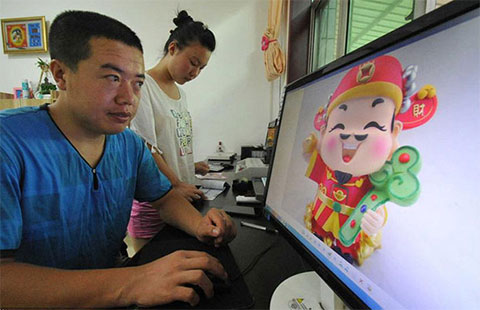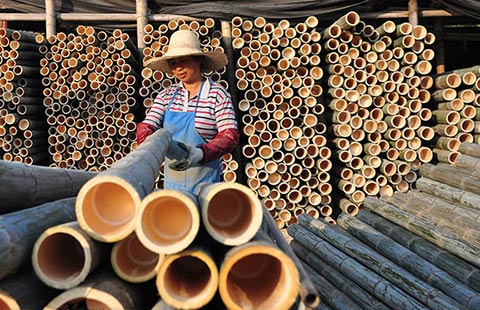Tmall to offer customers $47m in rebates
By Bloomberg News in Hong Kong (China Daily) Updated: 2012-06-13 10:58"The online retail market is getting to be a really big economy by itself, and it's going to grow much faster," said Alicia Yap, head of Internet research at Barclays Capital in Hong Kong.
The ability of online retailers to offer cheaper prices may help them attract cost-conscious consumers as China's growth weakens, said analyst Cavender. China's economy expanded 8.1 percent in the first three months of this year, the fifth quarterly deceleration.
"Even if there is an economic slowdown, you'd expect the e-commerce companies will be affected less than the brick-and- mortar stores," Cavender said.
Success for Alibaba will increase pressure on chains such as Suning and Gome Electrical Appliances Holding Ltd, which are revamping their online businesses to retain customers amid sliding earnings and share prices as e-tailers keep gaining.
Suning says it will offer new products on its Yigou e-commerce site and step up promotions. The company also has a 200 million yuan program to reimburse price differences for customers who find cheaper deals elsewhere.
And Gome has agreements to sell products on the website of E-Commerce China Dangdang Inc, China's biggest Internet bookseller. Gome last month said spending on its online business may hurt profit margins. The retailer has agreed to sell 40 percent stakes in its Kuba and Xinruimei e-commerce units to a company controlled by its founder, Huang Guangyu.
"We are feeling the white heat of competition from traditional and online retailers," Gome Chief Financial Officer Fang Wei said in a conference call.
Less risk
Alibaba is more profitable than rivals because it doesn't stock merchandise itself, according to RedTech's Clendenin. That means Alibaba has less risk of a squeeze on profit margins from a price war.
"They are essentially just an online real-estate company, selling space on their servers," Clendenin said. "It doesn't take any inventory risks."
While Alibaba's original consumer marketplace, called Taobao, lets small businesses sell to consumers for free, Tmall serves larger companies and charges fees and takes commissions. Dell Inc and Fast Retailing Co's Uniqlo clothier are among the brands that use Tmall to reach higher-end Web shoppers.
Competitors have responded with their own investments in online sales. Tencent, China's biggest Internet company, said it plans to spend $1 billion on its e-commerce unit.
360Buy.com and Dangdang are expanding their marketplace divisions in tandem with their main online retail operations. And 360Buy said it will offer a 1 billion yuan promotion program for consumers.
- China's new energy vehicle production rises rapidly
- Chinese growth a boon for world
- CapitaLand's Q2 net profit up 5.8% to $335m
- A glimpse of former Shougang industrial site
- Chinese stock investors' confidence rises in July: survey
- China service business activity at 11-month high: survey
- Toyota warns of tough times ahead as competition heats up
- Weak China sales may force BMW to revise full-year profit targets

















